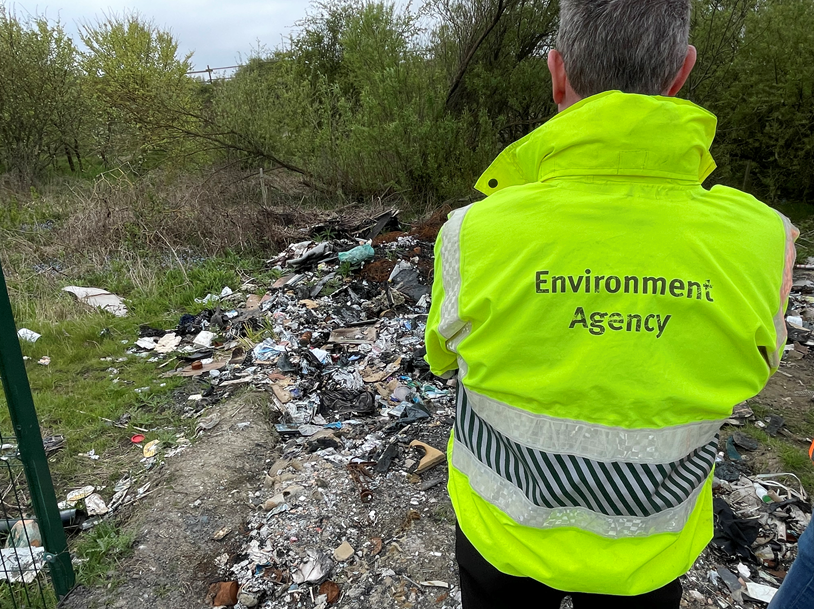In the previous year – 2022/23 – England recorded 1.08 million incidents of fly tipping.
Defra’s statistics have also shown that 60% of the reported incidents involved household waste. This totalled 688,000 in 2023/24, an increase of 5% from 654,000 incidents in 2022/23.
In 2023/24, 47,000 incidents were reported of “tipper lorry load” size or larger – which represented 4% of all incidents reported last year. This was an increase of 11% from 42,000 incidents of this size reported in 2022/23.
Clearing waste of this size cost the local authorities in England £13.1 million last year.
Enforcement action
The average court fine has increased from £526 in 2022/23 to £530 in 2023/24.
The total number of court fines decreased by 8% from 1,491 in 2022/23 to 1,378 in 2023/24, with the combined value of these fines decreasing by 7% from £785,000 to £730,000.
The Environment Agency (EA) told Letrecycle.com that it will continue working with HM Revenue and Customs (HMRC) to tackle waste crime.
In an opinion-editorial released this morning (26 February 2025), EA deputy director at Steve Molyneux, said: “The EA leads on regulatory enforcement of the waste sector, while HMRC is responsible for landfill tax. We’ve worked with HMRC since 2018 to shut down illegal waste sites and individuals who evade paying landfill tax by illegally depositing waste.
“And our partnership is working – over the last five years, HMRC has carried out more than 1,300 landfill tax compliance interventions, generating around £1.2 billion.”
Industry reacts to latest fly tipping statistics
FCC Environment’s head of external affairs, Julie Fourcade, said: “Fly-tipping is blight on the UK’s countryside, and brings with it a significant cost to councils to deal with. With council budgets increasingly tight, this money could be better spent investing in initiatives and services that help drive up recycling rates, rather than dealing with the mess left by rogue operators.
“With the rates of fly-tipping on the rise, more needs to be done to combat the issue. The Environment Agency needs both the funding and the teeth to effectively bring these criminals to justice.”
David Gudgeon, head of external Affairs at Reconomy Connect, a brand by Reconomy, the international circular economy specialist, added: “This latest data is staggering and underlines the severe economic harm of fly tipping. It shows that the taxpayer is footing a £13.1 million bill to handle the costs of clearances for tipper lorry size loads (or larger) loads, while the authorities are only recovering £730,000 from fines, a 7% decrease on 2022/23.
“This highlights a number of important call-to-actions. The fact that household waste accounts for so much of this clearly demonstrates the need for greater public education on how and where people can safely dispose of waste and the importance of doing so. There also needs to be a greater focus on fines and enforcement action to create better deterrents and a change in societal thinking to acknowledge the negative impact fly-tipping has on all of us. Businesses also have a key role to play in this by ensuring they are using a reputable and fully compliant waste and recycling company.
“Digital Waste Tracking, a UK-wide system that records waste from households, businesses, and industries, due to come into effect in April 2026 may help tackle this issue. Ultimately though, the data reiterates the imperative of accelerating our shift towards a truly circular economy which protects local environments, boosts economic resilience and future-proofs businesses by preventing waste and circulating resources back into use.”
You can view our full sector reactions piece here. Want to see your comment included? Email savannah.c@letsrecycle.com.





Subscribe for free